How Our Odyssey Began
Behind the scenes at our first convocation. PLUS: President Pano Kanelos talks 'Hamlet' with Associate Professor of Political Philosophy Alex Priou.
Some of you asked why our students donned robes two weeks ago and processed through downtown Austin and to the Texas State Capitol to mark the beginning of the academic year. Doesn’t such a ceremony belong at the end of an undergraduate education, not at the beginning?
That ceremony was our convocation, the first in the University's history.
The word “convocation” means an assembly of persons; in a university context, it refers to a formal gathering to induct new students into higher education and celebrate their entrance.
At the University of Austin Convocation on Sept. 2, 2024, each of our new students signed the enrollment register, received a copy of Homer’s Odyssey—which they will soon read in Intellectual Foundations—and thus matriculated as a member of the Class of 2028.
Convocation marked the beginning of our students’ academic journey and is one of many traditions we inaugurated in our opening week.
Benjamin Crocker, associate vice president of students and community, was the first to address the Convocation assembly.
“To you, our newly inducted students, we thank you for your courage, your adventurousness, your boldness, and your chutzpah!" he said.
“We challenge you to be forthright in your determination to succeed and humble upon the discovery of that success,” he continued.
“As Odysseus said: ‘May you cherish this labor in the waves and wars: bring the trial on.’”
Provost Jacob Howland followed Crocker with an exhortation to “Team UATX.”
“The trust that each of you has shown in our collective educational endeavor is a sacred one,” he said. “We are in this together. Let us raise up a university for the ages that is second to none and will do us proud in ages to come.”
In his concluding address, President Pano Kanelos reflected on the University’s return to the wellsprings of Western civilization. A UATX education will aim to liberate students from ignorance by evading the idols that distort our understanding of reality. It will also teach them the wisdom to use their knowledge well.
“Ours is a revolutionary institution—revolutionary in the proper sense,” Kanelos said. “False revolutions propose only the tearing down of the established order; they are an exercise in nihilism. Yet the word revolution—in its original sense, revolvere—means to revolve, to turn back to a point of origin, with the purpose of renewing an original spirit or ideal.”
The students’ donning of academic robes—alongside the distinct regalia of their President and deans—invokes a tradition dating back to the first medieval European universities.
Originally, robes kept scholars warm in unheated buildings. They also set them apart from their fellows, marking them as dedicated to study.
At Convocation, our students' robes symbolically set them apart as initiates into the University’s project and mission.
As Howland said in his address:
“Today, we inaugurate, with the pomp of academic robes and the playful circumstance of cowboy hats, an institution dedicated to nothing less than the renewal and restoration of higher education in America.”
A selection of recently published faculty and staff perspectives.
→On Associate Professor of Political Philosophy Alex Priou’s The New Thinkery podcast, President Pano Kanelos discusses the University of Austin, Hamlet, and the duty to remember:
The only response to nihilism is creation—the affirmation of the potential for things to be born anew. For us, founding the University of Austin is a moral activity and a statement that we will not surrender to the void. We will bring things into the world. And we’ve designed a university to create generations of founders: much of our curriculum is dedicated to helping students think about how they can build, create, and innovate—after they’ve understood the intellectual foundations of our civilization.
…
Instead of telling Hamlet to avenge his father’s death, the ghost tells him that his obligation, his duty, is to remember him. He says, “Hamlet, Hamlet, remember your poor father.” And Hamlet absorbs the call to remember, and that becomes the thing that animates him.
…
At the University of Austin, we are trying to understand and remember the genealogy of modernity, to understand who we are, the world we inhabit, and what kind of action we should take.
And the process of aligning what’s on the inside with what appears to be on the outside is a primary activity of a truth-seeking institution.
→In Education Next, Assistant Professor of Literature Clay Greene explains why poetry should be read aloud in English class:
Horace, Milton, Shakespeare, and Shelley did not set out to write enigma codes to be deciphered by scholars. They composed beautiful verse meant to live beautifully on the human voice. To recite poetry is to discover (as students) or rediscover (as educators) the ability of poets to speak down through the generations, using us as mouthpieces. It is a way to keep the flame of civilization alive.
→In his Substack, Associate Professor of Philosophy & Economics Scott Scheall opines on achieving popular sovereignty “in a world of policymaker ignorance”:
If we really want an improved democracy, more exemplary of the principle of popular sovereignty, we need mechanisms that do a better job of conveying to policymakers the required knowledge of voters’ preferences and how these might be satisfied, and that also convey in the other direction—from policymakers to voters—a clear understanding of the nature and extent of their representatives’ policy-relevant knowledge and capacities.
We’re seeking extraordinary individuals to join us in building the University of Austin. View all jobs.
What would you like to see Inside UATX? We want to hear from you. Email us at media@uaustin.org.
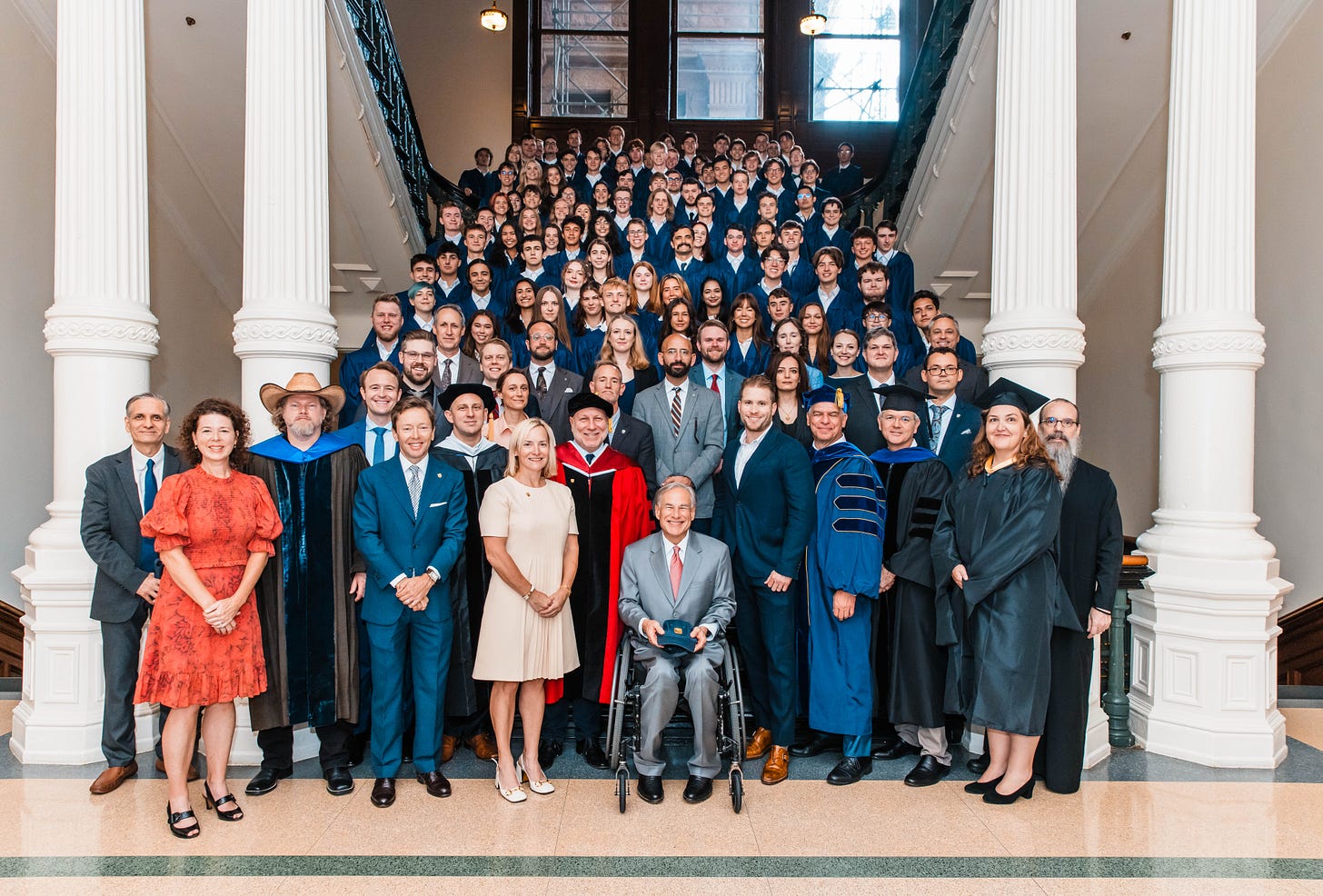
Maggie Kelly is the Communications Manager at the University of Austin. Write to her at mkelly@uaustin.org.

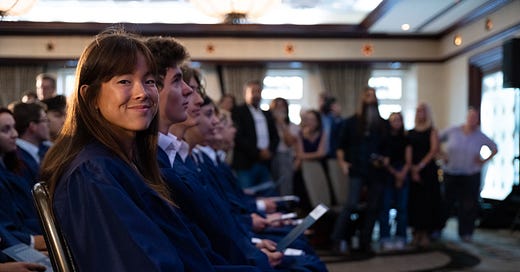



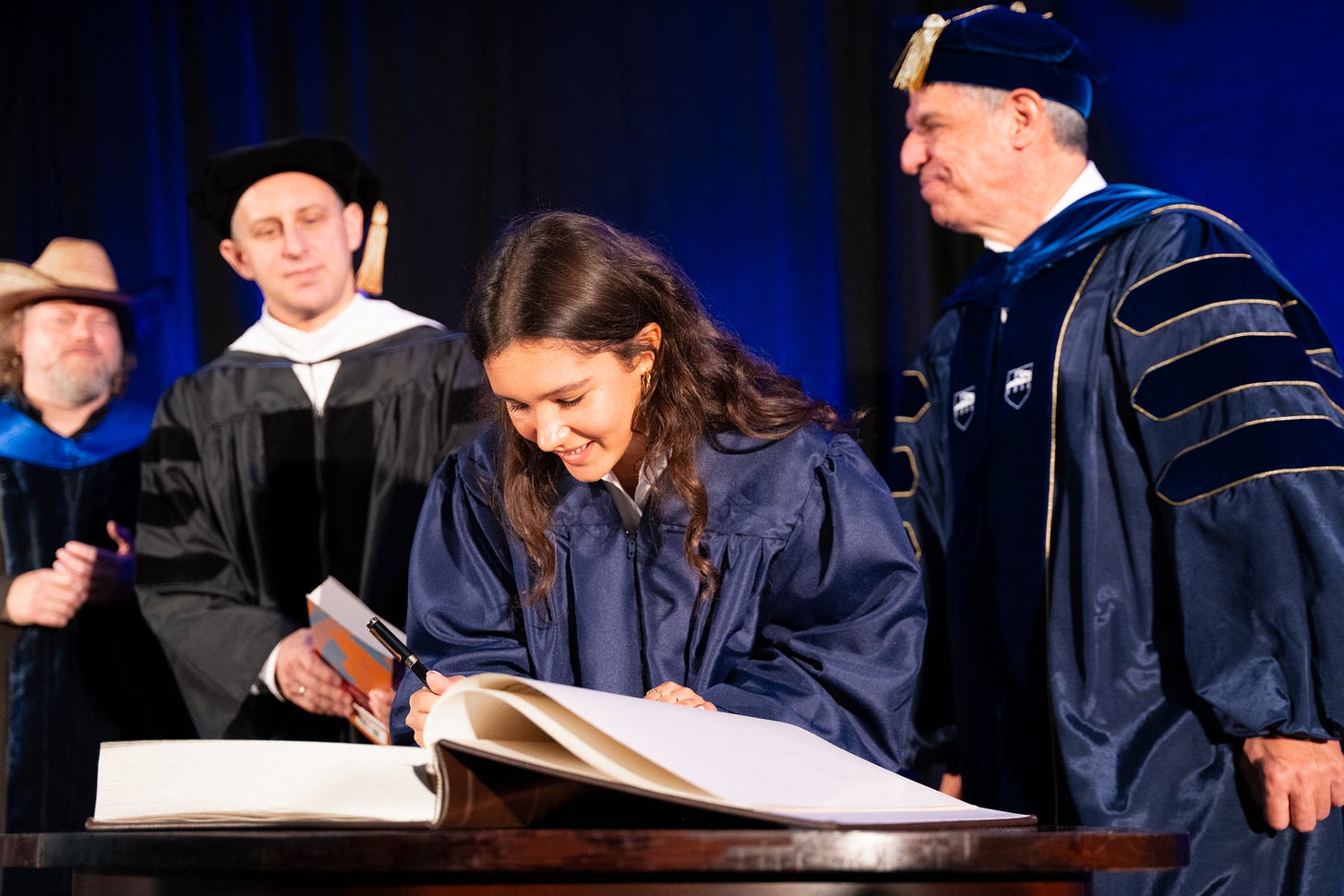

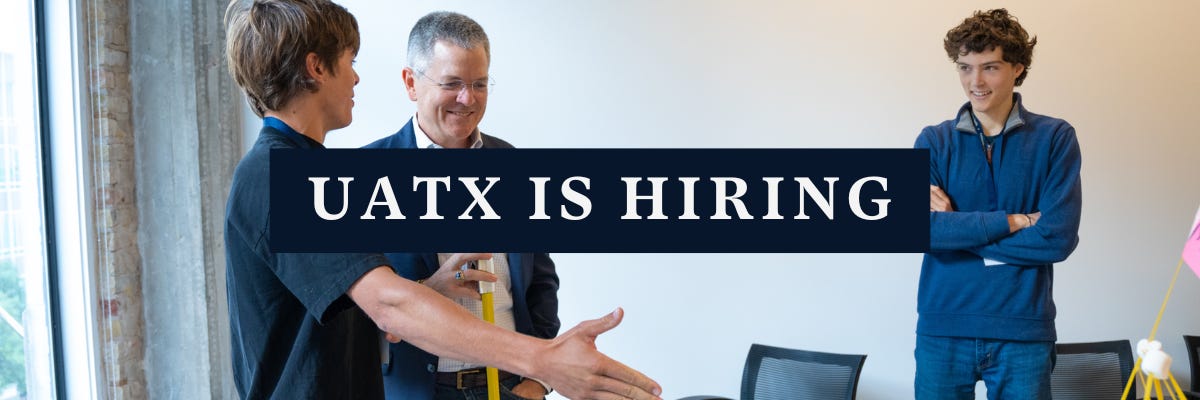
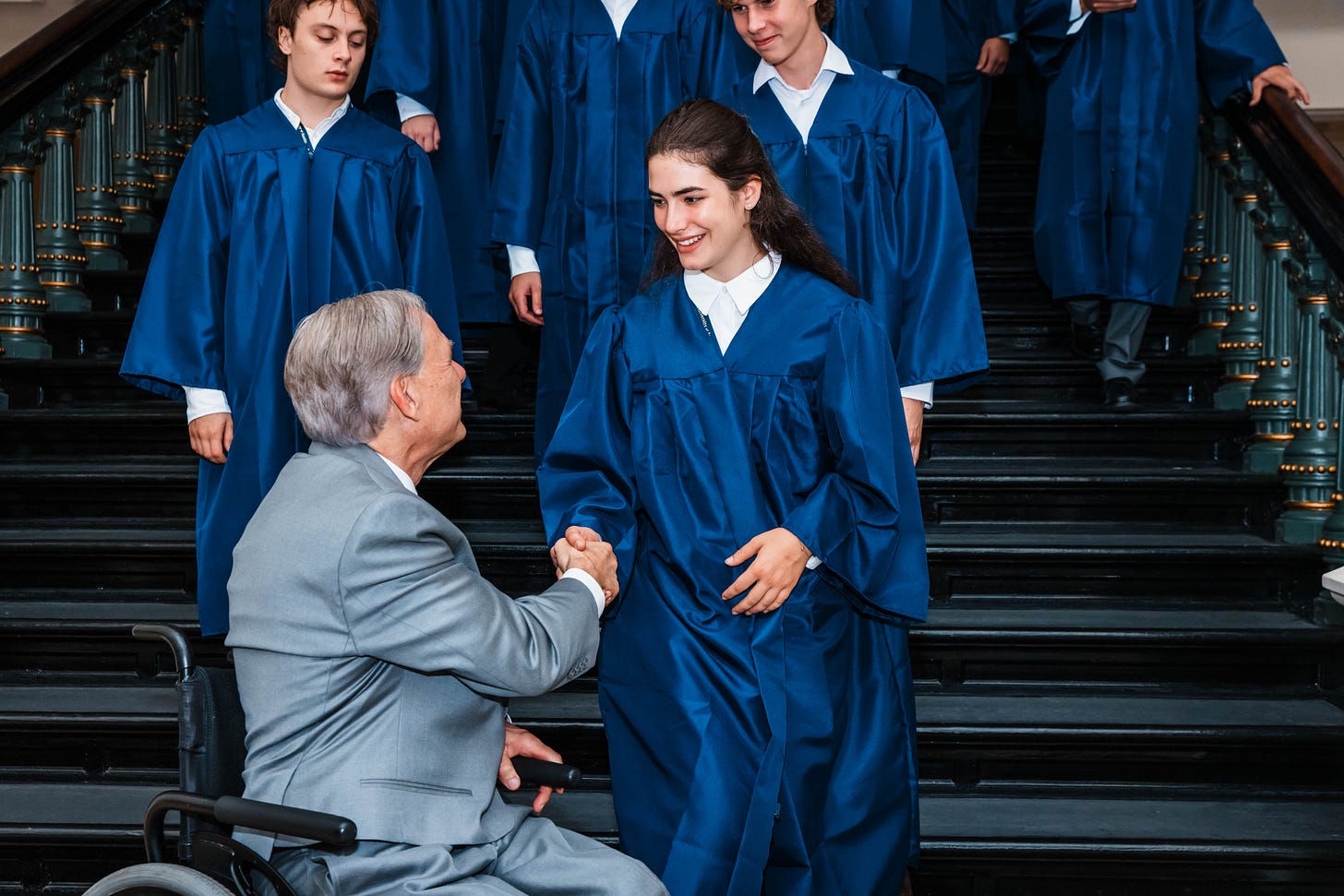

As a UT student in the 80s, I made that same walk/drive hundreds of times in every conceivable emotional, physical, and mental state, even worked as a messenger in the Texas State Capitol one summer. May Austin embrace your academic adventure as it did so many of my peers and colleagues. And don’t worry too much about that 40 Acres behemoth a few blocks North. Your New School carries the undiluted spirits of the true Old Austin!
Congratulations from New Hampshire with this fantastic opportunity to nudge education in the right direction. I probably would not know about your University without substack.